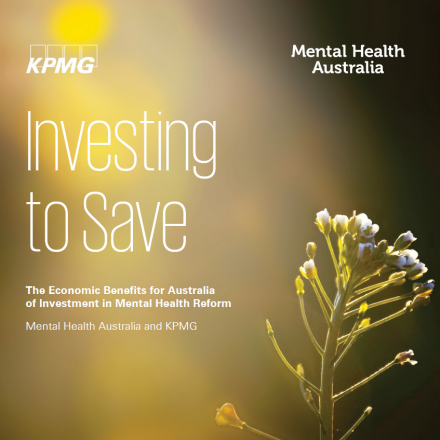Mental health in the bush: Issues arising from the Mental Health Commission's Review of Mental Health Programs and Services
 Article by Dr Anne-marie Boxall, Senior Policy Adviser, National Rural Health Alliance
Article by Dr Anne-marie Boxall, Senior Policy Adviser, National Rural Health Alliance
While the number of people with mental and behavioural problems is similar across the nation – around 20 per cent – suicide rates are 66 per cent higher in country areas than they are in the cities.[1] This suggests that the mental health of people in rural and remote areas is a major issue (despite the prevalence data) and should be given special consideration by governments.
In its recent Review of Mental Health Programmes and Services, the Mental Health Commission highlighted some of the unique challenges that people in rural and remote areas face when trying to access care. It found, for example, that:
- mental health services in rural and remote areas are transient, face significant workforce shortages and in many cases are decreasing despite high demand; and,
- programmes are given inadequate funding for the additional demands and costs of service delivery in regional, rural and remote areas.
Data from the Australian Institute of Health and Welfare illustrates the point about workforce shortages in the bush. It shows, for example, that the number of psychiatrists, mental health nurses and psychologists in regional areas is, respectively, 33 per cent, 82 per cent and 54 per cent of what it is in major cities.[2] GP mental health encounters in remote/very remote areas is also much lower than it is in the cities: 241 encounters per 1,000 people in remote/very remote areas compared with 668 per 1,000 people in major cities.[3]
The poor access to mental health care outside the cities is reflected in Medicare data. When compared with major cities, per capita Medicare expenditure on mental health services in inner regional and very remote areas is, respectively, 74 per cent and 11 per cent. [4]
To its credit, the Commission makes a number of recommendations that would lead to more equitable access to care for people in rural and remote Australia, if adopted. Some of these recommendations relate particularly to country areas. They include:
- Recommendation 5 – to make Aboriginal and Torres Strait Islander mental health a national priority and agree an additional COAG Closing the Gap target specifically for mental health;
- Recommendation 10 – to improve service equity for rural and remote communities through place-based models of care;
- Recommendation 13 – to enhance access to the Better Access program through changed eligibility and payment arrangements and a more equitable geographical distribution of psychological services;
- Recommendation 18 – to establish mental health and social and emotional wellbeing teams in Indigenous Primary Health Care Organisations, linked to Aboriginal and Torres Strait Islander specialist mental health services; and,
- Recommendation 19 – to establish 12 regions across Australia as the first wave for nationwide introduction of sustainable, comprehensive, whole-of-community approached to suicide prevention (two of these should be in remote areas).
A number of general recommendations also have the potential to improve mental health care in country areas. The introduction of mental health medical homes (Recommendation 12) in rurally-based Primary Health Networks would be a positive initiative because such entities would help facilitate access to coordinated care for rural people. Along the same lines, the proposal to bundle up programmes into small, flexible funds would make it easier for service providers in rural areas to deliver the care people need.
While the Commission made no specific recommendations about telehealth, it acknowledged the vital role it does, and could, play in improving access to care in rural areas. In its response to the report, the Government will need to pay special attention to the possibilities of telehealth while also ensuring that it is not used as a substitute for face-to-face care for people who need it.
The National Rural Health Alliance is strongly committed to improving access to mental health care for people in rural areas. It views the Commission’s report as an important contribution because it highlights some of the current inequities in access to care, but also because it makes concrete recommendations on how to remedy the problem. The Alliance, along with many in the mental health sector, awaits the Government’s response with great anticipation.
[1] http://www.abs.gov.au/AUSSTATS/abs@.nsf/DetailsPage/4326.02007?OpenDocument
[2] https://mhsa.aihw.gov.au/home/
[3] Mental Health Services Australia, AIHW, https://mhsa.aihw.gov.au/home/, GP encounters are estimated from the BEACH survey.
[4] https://mhsa.aihw.gov.au/home/
__________
Do you have a comment on this story? Join the conversation on Twitter @AUMentalHealth




